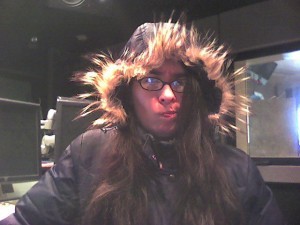The cold weather IS here! Don’t believe me: look at how many scarves are being worn around town, and the boots the ladies are now styling. It’s the time of the year where my usually-cold-hands become much colder without gloves, and the need for AC isn’t a need at all. Yes, it’s nothing like inches of snow and frost on a daily basis, or walking on icy patches on your driveway, but it can get chilly!
Thanks to the BBB (Better Business Bureau), they’ve put out a few tips to keep your family and yourself warm during these cooler nights…and days some weeks:
- Heater checkup and cleaning: Have a professional check the heater and ensure the thermostat and other parts are working properly. A computerized thermostat can save energy and money by reducing the temperature at night or when you’re away from home.
- Consider insulating heating ducts: The U.S. Department of Energy (DOE) estimates that a centrally-heated home can lose as much as 60 percent of warmed air before it reaches vents if the ductwork is poorly connected, not insulated, or if it travels through unheated spaces.
- Get a chimney checkup: Before lighting the first fire of the season, your chimney should be checked for animals, nests, leaves and other debris, as well as for any necessary repairs.
- Check smoke and carbon monoxide detectors: Homeowners should routinely test these devices to make sure they work and install fresh batteries as needed. Detector units should be replaced every 10 years.
- Trim Trees. Winter can mean ice storms and cold, windy days, all of which can contribute to limbs breaking out of trees and potentially causing home and property damage.
- Clear gutters and ridge vents: Clean gutters to prevent or remove any debris that could cause rainwater to clog, freeze and damage gutters. Ridge vents should be cleared to allow the house to “breathe” properly to eliminate stagnant inside air. Close any attic vents or windows that would allow heated air to escape and cold air to seep in.
- Plug holes: Small air leaks have a cumulative effect on home heating costs. Make sure windows close tightly. Check for leaks around them, and use caulking to plug the leaks. Inspect all weather stripping for cracks and peeling. Consider applying insulating film to drafty windows, and install a tight-fitting fireplace door or cover to stop a day-long loss of heat through the chimney.
- Car checkup: Let’s not forget our vehicles. Make sure you have ice scrapers, blankets and other cold-weather gear in your car. Have a mechanic check fluid levels to be sure reservoirs are full and able to withstand freezing temperatures. Do windshield wipers need to be replaced? Are defrosters and heaters working? Is there enough tread left on the tires for safe driving? Are they inflated properly?


0 Comments